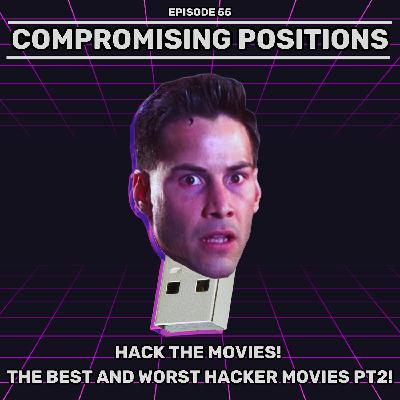This episode we are joined by the awesome Steve Trapps. Steve is the co-owner of Scrum Facilitators, an experienced Scrum Master, and a Professional Scrum Trainer with 20 years plus of experience in delivering complex products in many different business sectors.This week we answer that age old question, Can Cybersecurity Teams Actually Do Scrum? To answer that, we do a deep dive into when you should and shouldn’t use scrum in your cybersecurity teams and of course, we will learn exactly what a scrum master does! Together we will explore how scrum can be used to foster better conversations, create transparency and help you achieve your goal; what it takes to be an A1 facilitator, like Steve, as well as how not to get caught up in the dogma of ‘the scrum guide’!Key Takeaways:What is Scrum? How do I become a Scrum Master? More than just overseeing daily stand ups and organising Jira tickets we unveil the multifaceted responsibilities of a Scrum Master, including coaching, mentoring, and facilitating effective teamwork.Scrum for the Unknown, Not the Mundane: Scrum shines in situations with complexity and uncertainty, perfect for tackling emerging threats! But for routine tasks (BAU), consider alternative approaches.Ditch the "Scrum Guide Says" Mindset: Focus on the purpose of Scrum - fostering conversations, transparency, and clear outcomes. Don't get bogged down in dogma!How To Spot a Bad Meeting? Well you’re sweet for asking but…Links to everything we discussed in this episode can be found in the show notes and if you liked the show, please do leave us a review.Follow us on all good podcasting platforms and via our YouTube channel, and don't forget to share on LinkedIn and in your teams.It really helps us spread the word and get high-quality guests, on future episodes. We hope you enjoyed this episode - See you next time, keep secure, and don’t forget to ask yourself, ‘Am I the compromising position here?’ Keywords: cybersecurity, agile, scrum, scrum master, coaching, facilitation, kanbanShow NotesVisual Thinking: The Hidden Gifts of People Who Think in Pictures, Patterns and Abstractions by Temple GrandinRadical Candor: How to Get What You Want by Saying What You Mean by Kim ScottCreativity, Inc.: an inspiring look at how creativity can - and should - be harnessed for business success by the founder of Pixar by Ed CatmullAbout Steve TrappsSteve Trapps is the co-owner of Scrum Facilitators, an experienced Scrum Master, and a Professional Scrum Trainer with 20 years plus of experience in delivering complex products in many different business sectors. He started his career as a software developer, working for Nestle before working for Sky, building applications & websites for many of the English Premier League football teams. Previously being a developer, Steve has worked in various teams (Scrum and none Scrum) so he comes packed with real-life stories, from Start-Ups building the next social media network up to large corporations handling thousands of transactions a second. If you want to learn from someone who has been there, then Steve can share experiences to help you on your way. Steve focuses on helping individuals & teams reach their full potential through professional development coaching and professional training.LINKS FOR Steve TrappsSteve’s LinkedInScrum Facilitators

























